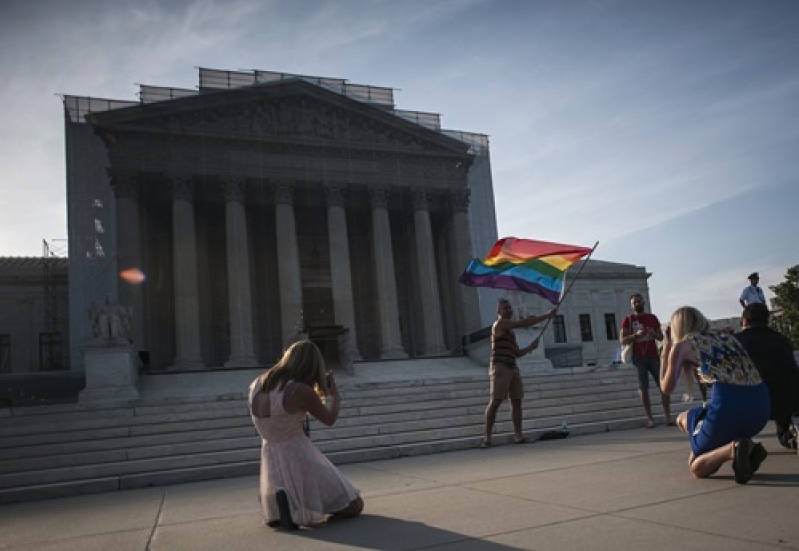
The Supreme Court struck down Wednesday California’s Proposition 8 that banned same-sex marriages; however, it avoided a broad ruling that would affect the whole country by saying could not decide a closely watched case on the constitutionality of the ballot.
The decision came in the second of two gay rights cases, United States v. Windsor and Hollingsworth v. Perry, decided by the high court. In the first, justices invalidated a part of the Defense of Marriage Act (DOMA) that denied federal benefits to same-sex couples from states that already permit gay marriage, because it is an unconstitutional deprivation of the equal liberty of persons that is protected by the Fifth Amendment.
Married gay couples will now be able to receive the same tax, health and retirement benefits that are available to married heterosexual couples, and gay weddings can proceed in California.
The challenge to DOMA (Windsor) was based on the claim that marriage is a matter for state rather than federal regulation while the challenge to Proposition 8 (Hollingsworth) was a challenge to the claim that an individual state can define marriage as between one woman and one man.
Chief Justice John Roberts, speaking for the 5-4 majority for case on (Perry), said the private sponsors of Proposition 8 did not have legal standing to appeal after the ballot measure was struck down by a federal judge in San Francisco.
“We have never before upheld the standing of a private party to defend the constitutionality of the state statute when state officials have chosen not to,” he said, according to Los Angeles Times. “We decline to do so for the first time here.”
"Because we find that petitioners do not have standing, we have no authority to decide this case on the merits, and neither did the Ninth Circuit," Roberts wrote.
In normal circumstances, the governor and state’s lawyers defend state laws in federal court, but both Gov. Jerry Brown and Attorney General Kamala Harris refused to defend Proposition 8, a voter-approved amendment in California that defined marriage as a union between a man and a woman.
Justice Ruth Badger Ginsburg, Stephen Breyer, Antonin Scalia and Elena Kaga formed the majority votes for the ruling on Hollingsworth v. Perry, enabling same-sex marriage in California to be legal again.
In the 5-4 decision on (Windsor), the Court struck down on section of DOMA. The majority opinion claims that, "By history and tradition the definition and regulation of marriage has been treated as being within the authority and realm of the separate States."
However, at the end of the ruling it notes, "This opinion and its holding are confined to those lawful marriages." This ruling limits federal benefits only to same-sex couples in states where same-sex marriage is legal and does not apply to same-sex couples living in states where their unions are not legally recognized as marriage. Additionally, the ruling does not require states to recognize the redefinition of marriage by other states.
The opinion was written by Justice Kennedy and joined by the four liberal Justices - Ginsburg, Breyer, Sotomayor, and Kagan.
Reuters reported that hundreds of gay marriage supporters had gathered Wednesday outside the Supreme Court to hear the long-awaited decisions on the judges’ rulings on gay rights.






